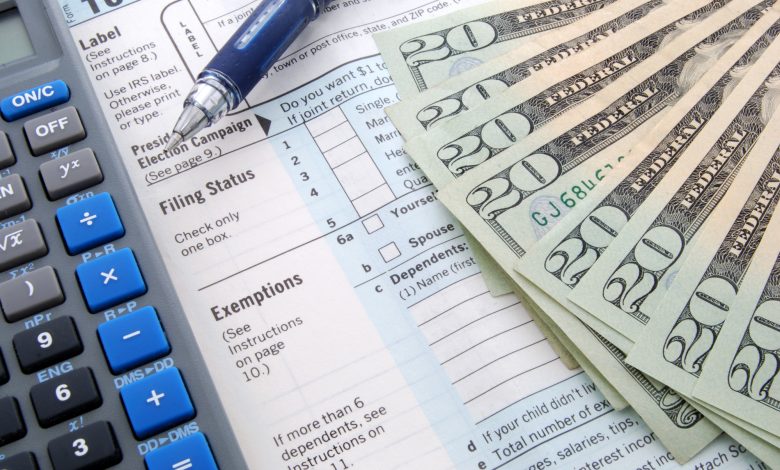Everything You Need to Know About Small Business Taxes

Adrian knew the IRS wasn’t reaching out to tell him the good news. And he was right.
First came the surprise tax bill, and second came the penalty. The fine was considerable because the failure to pay penalty is 5%. That’s 5% of unpaid taxes for every single month they’re left unpaid!
As a business owner, surprise tax bills and penalties from the IRS can be terrifying. The good news is that as long as you follow all of the rules, you can avoid these financial hazards. To help you out, we’ve put together this short guide all about small business taxes.
What do you need to know to avoid penalties from the IRS? Read on to find out.
Understanding Employee Identification Numbers
One of the most significant tax responsibilities employers need to be aware of is obtaining employer identification numbers or EINs. You can get an EIN directly from the IRS.
An EIN is a number that legally identifies your company’s business for tax reasons. You can think of it as a social security number, but for your company.
As a business owner, you’ll need to immediately obtain an EIN if you want to start a business bank account. Applying for business licenses, and filing your tax returns, also require a verifiable EIN.
As soon as you start planning your business, go ahead and apply. That way, you can guarantee there aren’t any delays in obtaining the proper financing or licensing you need for operation.
The fastest and easiest way to apply is by going directly to the IRS website and looking for their EIN assistant. The best part is there isn’t any charge for the service.
If you don’t want to use the internet, you can also apply by mail or fax. Is your business operating outside of the United States? Then you’re not going to apply for an EIN.
Securing an EIN is only necessary for the United States incorporated companies. It’s how you’ll be able to efficiently manage your financial, legal, and regulatory matters.
All About Self-Employment Tax Tips
What about small business taxes for income? Income taxes work differently for small businesses than they do for individuals.
Tax rates can get pretty complex, and it can be tricky to understand how the calculations work. The small business tax rate tends to rest right around 20%, but it can fluctuate. The type of business you own is going to affect how your tax.
For instance, sole proprietorships pay a lower tax rate than partnerships. Alternatively, s corporations are going to pay a higher tax rate than small partnerships.
If you don’t know your company’s income tax rate, how will you know what tax cuts you’re eligible for? The answer can vary depending on what type of tax you’re talking about.
As long as you familiarize yourself with the different tax terms, it’ll be easier to identify the accurate rate. For instance, did you know that small business owners face six different types of taxes?
Self-Employment Calculations
Income taxes are to start! There’s also self-employment, traditional employment, excise, property, and sales and use tax.
Self-employment taxes are mandatory for anyone who employs themself. Self-employment taxes are important because they help with social security and medicare.
They work a lot like FICA taxes. The Medicare and social security taxes that employees pay through standard payroll deductions. You’ll need to verify the current self-employment tax rate before filing.
What do you need to determine your income tax total? You’ll need your current tax credits, expenses, and any other financial adjustments.
Typically the percentage will rest right around 15%, and it’ll include your net profit from the business year. If your company experienced a loss, the self-employment calculation uses the loss total instead.
The resulting number will be your net earnings, the same thing as a loss or profit. To come out on top, it’s worth your time to learn more about applicable tax credits.
Partnerships and LLCs with more than one member will report their self-employment taxes on a Schedule K-1 form. Single-member LLC owners and sole proprietors will report their self-employment taxes on a Schedule C form. Anyone working individually as a self-employed individual can use a Schedule SE tax form.
Are you self-employed and also an employee? You’re going to use both incomes to determine the total amount of Medicare and social security tax due. Your employment income comes first, but you still might owe more on the net earnings than the overall net earnings.
How Excise Taxes Work
What is excise tax? Excise tax is sometimes referred to as excise duties. They’re the type of taxes the government levies on specific activities and goods.
Excise taxes help with government and revenue generation. They can also influence consumer buying behavior. Any level of the government can add excise tax activities and goods.
Your business is responsible for paying these taxes, but the customers will feel the impact. For instance, business owners will usually pass on a 10% excise tax by adding it to the consumer’s bill.
Do you work in a manufacturing business? You might not have to pay an excise tax for certain goods you produce.
What are a few examples of excise tax? California is a great example of its excise tax on lead-acid batteries. Since these batteries can cause groundwater pollution, the tax helps limit consumption. Not only does the tax apply to consumers but also to manufacturers of lead-acid batteries.
In California, the manufacturer pays an excise tax for every sale. The retailer must also charge consumers the same tax.
After collecting sales and excise tax from customers, you’ll need to record them in your accounting software. We suggest using tax accounting software that has cloud services.
You’ll have to remit your excise and sales taxes every quarter in most situations. Accounting for excise taxes is a lot like recording sales tax.
Sales and Use Tax
The sales tax applies at the point of purchase situations. It’s a tax that consumers pay who are buying your services are goods. In the United States, your state serves as an authority, and so does your county or city.
The exact sales tax calculation takes into account your current address. Once you know the tax, you’ll need to add it to each service or item you offer. It’ll be included in the total cost for the consumer.
Typically, sales taxes are triggered whenever somebody purchases a tangible product. However, digital services and physical services also apply.
Even though the consumer is going to take on the legal burden of paying the tax, it’s up to you to keep track of everything. Business owners have to collect sales tax. Then you have to pay the taxes directly to the state and, if necessary, pay the county or municipality.
Once a sales tax is in effect, it’s required for any credit card sale or cash transaction. Sales tax also applies to layaway sales, trade-ins, exchange of property, and installment sales.
Keep in mind that the IRS has very little to do with the sales tax process. However, if you’re running a non-profit, the IRS can help you qualify for special sales tax exemptions.
Business Personal Property Taxes
The last item to address in our tax guide is property taxes. If your company owns the tangible property, you’ll need to familiarize yourself with the state, local, and federal property tax rules.
What qualifies as tangible property? Broadly speaking, the tangible property includes any goods or products relevant to business use. For instance, furniture, machinery, computers, and business and cash registers all qualify as tangible personal property.
You’ll most likely have to pay tax on your business personal property when you first purchase it. Many states will require a predetermined sales tax for most types of tangible personal property. Typically the tax will be collected when you’re making the purchase.
Are you purchasing property for your company from somebody out of state? The sales property tax might not be automatically calculated when the seller is out of state. It’ll be your responsibility to pay the tax directly to your state for any long-distance purchases.
That includes purchases made online from out-of-state sellers. You’ll probably also have to pay an additional annual tax when you’re filing with your local government. Individual cities and counties tend to collect taxes based on the current value of your business property.
Master Small Business Taxes
Now you know some of the best finance management tips. You don’t have to worry about surprise bills throwing you off when you keep up with small business taxes throughout the year.
Since obtaining an employee identification number is the first step, go ahead and get that out of the way today. Remember, you can apply for your EIN directly on the IRS website or mail in your application.
While you’re waiting for the validation of your EIN, you can start to explore the income tax rates for your state. You’re also welcome to explore the rest of our site; we have tons of great tips.
For more visit the article on this website.





